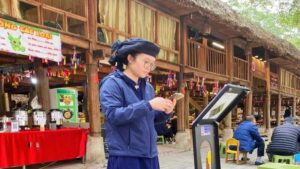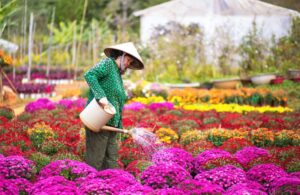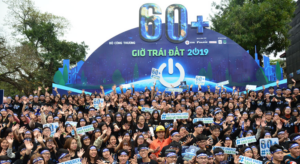People in the Asia-Pacific region, especially the poor, have to face the complex impact of climate change including changes in precipitation, drought, flooding, extreme weather events and sea-level rise.
This was said by the UNDP Country Deputy Director, Bakhodir Burkhanov, when he presented the 2012 Asia-Pacific Human Development Report entitled “One planet to share – Sustaining human progress in a changing climate” in Hanoi on May 15.
The report argues that in the face of climate change, countries in Asia and the Pacific “will need to change the way they manufacture goods, raise crops and livestock, and generate energy.” This will mean “moving to greener, more resilient, lower-emission options that not only sustain the environment, but also offer opportunities to the poor for employment and income.”
Vietnam now has 543 small- and medium-sized businesses operating in some manufacturing sectors such as bricks, ceramics, and paper, as well as food processing. They are receiving technical and financial support from an energy conservation project which helps them install energy saving technologies in their facilities.
The project has saved a total energy amount equivalent to 232,000 tonnes of oil, boosted these businesses’ profits and improved their product quality, especially by using modern kilns for bricks and ceramics.
It has encouraged businesses to effectively consume energy by giving them incentives for taxes and finance, and applying energy efficiency labelling. By the end of 2011, these measures helped cut nearly 950,000 tonnes from carbon dioxide emission.
Prof. Nguyen Xuan Hoc, Deputy Chairman of the National Committee for Climate Change, said the Mekong River Delta in southwest Vietnam, which has a population of nearly 17.5 million living on an area of 3.9 million ha, is one of the most vulnerable regions to climate change in Vietnam.
Beside the common effects, it also suffered from coastal and river bank erosion, deep floods in low areas and tropical storms penetrating to places which used to be safe and not affected by natural disasters, he said.
To deal with the problems in the Mekong River Delta, Vietnam has cooperated with many countries in the world and especially the Netherlands, which chose the region as a main focus for a comprehensive plan of coping with climate change.
This is the right choice, as protecting the Mekong River Delta is of great importance for ensuring national food security for sustainable development in Vietnam.
















